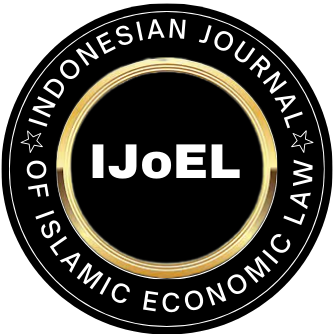IJOEL Partners with POSDHESI International Conference
2024-06-30
Big news for the scholars of Islamic economic law!
Read more about IJOEL Partners with POSDHESI International Conference
Read More Read more about IJOEL Partners with POSDHESI International Conference


Universitas Muhammadiyah Surakarta
Jl. Ahmad Yani, Pabelan, Kartasura, Sukoharjo, 57169
Central Java, Indonesia

Master of Islamic Economic Law, Universitas Muhammadiyah Surakarta
Isman (ism190@ums.ac.id)
Ahmad Imam Hambali (aih961@ums.ac.id)
Gedung Pascasarjana - Kampus 2
Jl. Ahmad Yani, Pabelan, Kartasura, Sukoharjo 57169
Central Java, Indonesia

